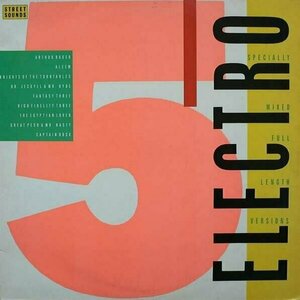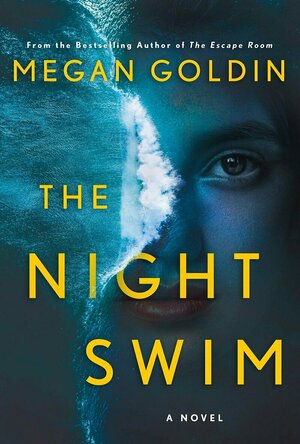Search
Search results

Delicious - Emily's Miracle of Life
Games
App
Join Emily for a very special chapter of her life! One thing's for sure, her family will never be...
AA
African American History
Book
A groundbreaking approach to primary source documents, with in-depth expert analysis of the court...
BankofMarquis (1832 KP) rated Another Round (2020) in Movies
Apr 21, 2021
Interesting...but the ending did not resonate
Films have a tendency to fall on one of 2 sides when their subject matter is drinking, partying and alchoholism - (1) “They’re just a bunch of partying fun people” or (2) “They’re drinking to cover up emotions they don’t want to deal with and, eventually, it will lead to their ruin”.
Danish Director Thomas Vinterberg was the surprise Oscar nominee for his direction in the film ANOTHER ROUND (a film he also co-wrote) as he attempted the noble feat of straddling these two sides.
And…the result is an admirable attempt that falls just shy of being good.
Starring the great Mads Mikkelsen (the villain in the first DR. STRANGE film), ANOTHER ROUND tells the tale of 4 Danish High School teachers who are stuck in a rut (call it a mid-life crisis) and come up with the idea of being slightly drunk all of the time to elevate their lives.
The first half of the film flirts with “Frat Boy Party” territory as the 4 friends embark on the quest to see if staying slightly drunk elevates them. The results are quite mixed with moments of joy and triumph mixed in with some cringe-inducing moments. But then Vinterberg mines the “dark side” of alcoholism and the film takes a dark - and more interesting turn - only to have another turn at the end that just didn’t work for me.
Mikkelsen, of course, is quite good in the central role of Martin - the family man in mid-life depression crisis that kicks into “Frat Boy” mode when drinking “just enough”. His character switches back and forth between these 2 modes and Mikkelsen handles these changes like the terrific actor that he is.
His 3 friends played by Magnus Millang, Lars Ranthe and Thomas Bo Larson are all equally depressed and switch back and forth right along with Martin. Unfortunately, none of these 3 have the “it” factor of Mikkelsen, so are really kept in his shadow - with the possible exception of a few moments by Larson.
This is the first film I have seen from Vinterberg, but what I have read about him is that this film pretty much sums up his career. An interesting idea, told fairly well with an ending that doesn’t really land. And that’s what I thought of this film. I’m glad I saw it, but it will fade after a time, as the ending just didn’t provide enough depth to keep ANOTHER ROUND with me for long.
Letter Grade: B-
6 stars (out of 10) and you can take that to the Bank(ofMarquis)
Danish Director Thomas Vinterberg was the surprise Oscar nominee for his direction in the film ANOTHER ROUND (a film he also co-wrote) as he attempted the noble feat of straddling these two sides.
And…the result is an admirable attempt that falls just shy of being good.
Starring the great Mads Mikkelsen (the villain in the first DR. STRANGE film), ANOTHER ROUND tells the tale of 4 Danish High School teachers who are stuck in a rut (call it a mid-life crisis) and come up with the idea of being slightly drunk all of the time to elevate their lives.
The first half of the film flirts with “Frat Boy Party” territory as the 4 friends embark on the quest to see if staying slightly drunk elevates them. The results are quite mixed with moments of joy and triumph mixed in with some cringe-inducing moments. But then Vinterberg mines the “dark side” of alcoholism and the film takes a dark - and more interesting turn - only to have another turn at the end that just didn’t work for me.
Mikkelsen, of course, is quite good in the central role of Martin - the family man in mid-life depression crisis that kicks into “Frat Boy” mode when drinking “just enough”. His character switches back and forth between these 2 modes and Mikkelsen handles these changes like the terrific actor that he is.
His 3 friends played by Magnus Millang, Lars Ranthe and Thomas Bo Larson are all equally depressed and switch back and forth right along with Martin. Unfortunately, none of these 3 have the “it” factor of Mikkelsen, so are really kept in his shadow - with the possible exception of a few moments by Larson.
This is the first film I have seen from Vinterberg, but what I have read about him is that this film pretty much sums up his career. An interesting idea, told fairly well with an ending that doesn’t really land. And that’s what I thought of this film. I’m glad I saw it, but it will fade after a time, as the ending just didn’t provide enough depth to keep ANOTHER ROUND with me for long.
Letter Grade: B-
6 stars (out of 10) and you can take that to the Bank(ofMarquis)
Shelle Perry (66 KP) rated Zombies for Everyone: A Jenna Sutton Supernatural Cozy Mystery in Books
Aug 10, 2021
The mystery was well-paced with plenty of clues.
YA Cozy is a new one for me, though I will say this book feels more like a paranormal adventure story than a cozy mystery. The mystery was well-paced with plenty of clues. It was easy to assume why the attacks were happening once it came up in conversation, and from there, very easy to pick out the big bad. Still, the story was an enjoyable one with lots of action and plenty of pop culture references, some of which I am certain are less applicable to the YA crowd than their parents, but fun nonetheless.
In this book we are introduced to Jenna and her partner Kieron, high school students with a little something extra. She is a Hunter. Her job is to investigate and hunt down things that go bump in the night. Kind of a cross between Dean Winchester and Buffy Summers. Kieron provides moral, tech, and info support. They are asked to track down the source of a zombie bite before it leads to a full-on outbreak. It becomes apparent that there is more going on than a simple zombie attack and with several great suspects, it moves at a fair clip.
Despite the extracurriculars they really are just typical seventeen-year-old kids worrying about dating, homework, and mean girls. That is a fun contrast to the uber adult nature of the work they do. Jenna’s mother is missing, presumed dead (a story point that I am certain will be prominent in upcoming books) Leaving Jenna with the job of caring for herself while staying under the radar of adults who would put her in the system.
The magic world built for this story is sound, though it will need some bolstering ahead as it went up fairly quickly. I think another 50 pages of story could have easily softened the info dump feel. There is a lot of information to process about magic and recurring characters, as well as The Consortium and The Covens, but at some point in this series, things are going to get really interesting and my sixth sense is tingling in anticipation. This is a great story for age 12-18 readers and really for anyone who enjoys YA and/or paranormal cozy.
⭐⭐⭐⭐
Rating: 4 out of 5.
I received an advance review copy for free through Great Escapes Virtual Book Tours, and I am leaving this review voluntarily
In this book we are introduced to Jenna and her partner Kieron, high school students with a little something extra. She is a Hunter. Her job is to investigate and hunt down things that go bump in the night. Kind of a cross between Dean Winchester and Buffy Summers. Kieron provides moral, tech, and info support. They are asked to track down the source of a zombie bite before it leads to a full-on outbreak. It becomes apparent that there is more going on than a simple zombie attack and with several great suspects, it moves at a fair clip.
Despite the extracurriculars they really are just typical seventeen-year-old kids worrying about dating, homework, and mean girls. That is a fun contrast to the uber adult nature of the work they do. Jenna’s mother is missing, presumed dead (a story point that I am certain will be prominent in upcoming books) Leaving Jenna with the job of caring for herself while staying under the radar of adults who would put her in the system.
The magic world built for this story is sound, though it will need some bolstering ahead as it went up fairly quickly. I think another 50 pages of story could have easily softened the info dump feel. There is a lot of information to process about magic and recurring characters, as well as The Consortium and The Covens, but at some point in this series, things are going to get really interesting and my sixth sense is tingling in anticipation. This is a great story for age 12-18 readers and really for anyone who enjoys YA and/or paranormal cozy.
⭐⭐⭐⭐
Rating: 4 out of 5.
I received an advance review copy for free through Great Escapes Virtual Book Tours, and I am leaving this review voluntarily
Nick McCabe recommended Street Sounds Electro 5 by Various Artists in Music (curated)
Mark Arm recommended Hendrix In The West by Jimi Hendrix in Music (curated)
Kristy H (1252 KP) rated The Night Swim: A Novel in Books
Sep 17, 2020
Dark, timely and propulsive thriller
Rachel Krall, from the popular Guilty or Not Guilty true crime podcast, finds herself in the town of Neapolis, North Carolina for season three. It's the first time she's covered a live trial, and it's a divisive rape trial no less. A high school girl "K" has accused popular swimmer Scott Blair of raping her. It's set the town on edge and brought up lots of questions about reputations and who can be believed. As Rachel arrives in Neapolis, she's shocked to find a letter on her car--rarely is the radio host recognized in public. But someone in the town wants her help unlocking the mysteries of what happened to her sister over twenty-five years ago. Jenny Stills' death--at sixteen--was ruled a drowning, but the letter writer insists she was murdered, and they want Rachel to help her find the killer. Quickly the past and present intertwine, as Rachel realizes the two cases may be connected.
"That's why I'm writing to you, Rachel. Jenny's killer will be there. In that town. Maybe that courtroom. It's time for justice to be done. You're the only one who can help me deliver it."
Goldin offers us an excellent thriller with a pervasive eerie feel. While, for the most part, I find myself tired of podcast tales, The Night Swim offers an overall fresh take on the genre, weaving in Rachel's episodes about the trial with her own investigation into both the current case and the Stills drowning. We also hear from the past, giving us even more insight into what happened to Jenny all those years ago. The result is a spellbinding, sometimes heartbreaking, read that's nearly impossible to put down.
I highly enjoyed putting the pieces together on this one--as they filter in via our various narratives. I had an early guess that proved to be right, but that didn't diminish my enjoyment of the book in any way. The ending was a little different, but overall, I was a big fan of the intersection of the two cases and the dark and timely themes this book brought up--rape, assault, and more. It offers an unflinching look at what women experience: and how rarely they are believed, trusted, or can turn to anyone.
Overall, this is an excellent, fast-paced thriller with two storylines that work well together. It's creepy and dark, with a strong, unforgettable message. 4 stars.
"That's why I'm writing to you, Rachel. Jenny's killer will be there. In that town. Maybe that courtroom. It's time for justice to be done. You're the only one who can help me deliver it."
Goldin offers us an excellent thriller with a pervasive eerie feel. While, for the most part, I find myself tired of podcast tales, The Night Swim offers an overall fresh take on the genre, weaving in Rachel's episodes about the trial with her own investigation into both the current case and the Stills drowning. We also hear from the past, giving us even more insight into what happened to Jenny all those years ago. The result is a spellbinding, sometimes heartbreaking, read that's nearly impossible to put down.
I highly enjoyed putting the pieces together on this one--as they filter in via our various narratives. I had an early guess that proved to be right, but that didn't diminish my enjoyment of the book in any way. The ending was a little different, but overall, I was a big fan of the intersection of the two cases and the dark and timely themes this book brought up--rape, assault, and more. It offers an unflinching look at what women experience: and how rarely they are believed, trusted, or can turn to anyone.
Overall, this is an excellent, fast-paced thriller with two storylines that work well together. It's creepy and dark, with a strong, unforgettable message. 4 stars.
Bong Mines Entertainment (15 KP) rated Nothing to Lose - Single by Kerri Medders in Music
Jun 25, 2019
Kerri Medders is a 19-year-old LA-based singer-songwriter and actress from the Lone Star State of Texas. Not too long ago, she released a dreamy alternative tune, entitled, “Nothing to Lose”.
“Walking over Melrose, stumbling out Aroma, I’d go anywhere as long as it’s with you. Talking about the bands we love, Rock ‘n’ Roll, Sex, and Drugs, everything about you is new. Baby you redesigned, you redefined love. Changing all the colors I use. We’re just people with nothing to lose.” – lyrics
‘Nothing to Lose’ tells an adorable tale of a young woman who shares a budding new relationship with her significant other.
Apparently, she’s optimistic about her and her blue-eyed lover’s future. Later, she suggests that they should write down their memorable moments and script it like a movie written for the screen.
‘Nothing to Lose’ contains a relatable storyline and ear-welcoming vocals. Also, the likable tune possesses vibrant instrumentation flavored with indie-rock, alternative, and commercial pop elements.
“The inspiration behind ‘Nothing to Lose’ is the development of a new relationship and the stages of starting a new adventure with another person. You want every hour, every minute, and every second to be spent with that person. Even though those new and strong feelings are scary, it still gives you that feeling that there’s absolutely nothing to lose in loving someone.” – Kerri Medders
‘Nothing to Lose” pays homage to the end of an era in Kerri Medders’ life. That era began in 2014 and includes EP’s Etched (2015) and Lot 17 (2017).
Also, it launched her on a nationwide tour for High School Nation, where she opened for the Plain White T’s and Drake Bell in front of more than 90,000 people.
Since then, Kerri has performed over 70 shows in venues and festivals around the U.S., capturing the hearts of thousands of fans with her energetic stage presence.
“When you come to my show, I want you to be transported to my world. Just leave your worries at the door and take this moment to be with me.” – Kerri Medders
As an up-and-coming actress, Kerri Medders has recurring roles on the Emmy nominated CBS drama, SEAL Team, and the Emmy-nominated Netflix comedy, Alexa & Katie.
Also, she has guest-starred on Gamers Guide to Pretty Much Everything on Disney XD, Mystery Girls on Freeform, and Speechless on ABC.
Not too long ago, she wrapped her first feature film as a lead opposite Jackson Rathbone in Do Not Reply, which will be released later this year.
“Walking over Melrose, stumbling out Aroma, I’d go anywhere as long as it’s with you. Talking about the bands we love, Rock ‘n’ Roll, Sex, and Drugs, everything about you is new. Baby you redesigned, you redefined love. Changing all the colors I use. We’re just people with nothing to lose.” – lyrics
‘Nothing to Lose’ tells an adorable tale of a young woman who shares a budding new relationship with her significant other.
Apparently, she’s optimistic about her and her blue-eyed lover’s future. Later, she suggests that they should write down their memorable moments and script it like a movie written for the screen.
‘Nothing to Lose’ contains a relatable storyline and ear-welcoming vocals. Also, the likable tune possesses vibrant instrumentation flavored with indie-rock, alternative, and commercial pop elements.
“The inspiration behind ‘Nothing to Lose’ is the development of a new relationship and the stages of starting a new adventure with another person. You want every hour, every minute, and every second to be spent with that person. Even though those new and strong feelings are scary, it still gives you that feeling that there’s absolutely nothing to lose in loving someone.” – Kerri Medders
‘Nothing to Lose” pays homage to the end of an era in Kerri Medders’ life. That era began in 2014 and includes EP’s Etched (2015) and Lot 17 (2017).
Also, it launched her on a nationwide tour for High School Nation, where she opened for the Plain White T’s and Drake Bell in front of more than 90,000 people.
Since then, Kerri has performed over 70 shows in venues and festivals around the U.S., capturing the hearts of thousands of fans with her energetic stage presence.
“When you come to my show, I want you to be transported to my world. Just leave your worries at the door and take this moment to be with me.” – Kerri Medders
As an up-and-coming actress, Kerri Medders has recurring roles on the Emmy nominated CBS drama, SEAL Team, and the Emmy-nominated Netflix comedy, Alexa & Katie.
Also, she has guest-starred on Gamers Guide to Pretty Much Everything on Disney XD, Mystery Girls on Freeform, and Speechless on ABC.
Not too long ago, she wrapped her first feature film as a lead opposite Jackson Rathbone in Do Not Reply, which will be released later this year.

Zoo Craft: Build & Design
Games and Entertainment
App
New zoo games! Trip to the zoo with kids! Build zoo, care about animals, become a zoo tycoon! Theme...

Taxi Parking Real Car Driving Simulator
Games
App
Featuring an all-new game mode – can you pick up your passengers and drop them at their...






